If you’re in the midst of planning a wedding, you’ve probably encountered parents, friends and acquaintances who have a plethora of opinions on the etiquette rules you should follow. Perhaps your mom is horrified by the idea of online RSVPs or your partner’s single friends want plus-ones for their just-met-you-online-two-weeks-ago girlfriends. Whatever the rules you’re bumping up against, there are some you should follow — and many you can ignore. Below are the wedding etiquette rules we think you should keep and toss.
Keep:
Send thank-you notes within a couple of months. There’s a rumor floating around out there that newlyweds have a year to send thank-you notes. This simply isn’t true. The confusion stems from a long-ago tradition: At one time, it was customary to send a wedding photo with your thank yous. Because it often took several months for photographers to process, print and send images, couples sent out thank-you notes long after the big day. Now, however, you’re not expected to send a picture — though if you’d like to, you can usually get a first batch of wedding images from your photographer fairly quickly — so sending thank-you notes to guests within a couple of months is gracious, and it’s one etiquette rule to keep.
Don’t put your registry information on the invitation. Giving a wedding gift is generous, but it’s not a requirement. Therefore putting your registry information on your invitation — which is meant to invite guests to celebrate your love and commitment — is a little, shall we say, uncouth. These days, most couples have a wedding website, so you can feel free to put your registry information there (print your website address on an enclosure and include it with your invitation). If you don’t have a website, you can ask a member of your bridal party to spread the word via Facebook, email, text message or word-of-mouth.
Invite your guests’ spouses and serious partners (but skip all other rules about plus-ones). There are many etiquette rules about plus-ones, but there’s only one we think you should stick to: Even if you’ve never met a coworker’s spouse or a friend’s serious boyfriend or girlfriend, it’s courteous to invite them to your wedding. Make a point of finding out their first and last names and include them on your invitation — it’s good etiquette.
Some etiquette books insist that all guests over 18 should be given a plus-one, but we think that’s up to you and your spouse-to-be to decide. The more guests at your wedding, the bigger your bill, so if you’re on a tight budget it’s OK to say no to plus-ones. You can choose to offer plus-ones to certain guests (for example, an out-of-town friend who won’t know anyone else at the wedding), but not to others (like your coworkers, for instance, who will all know each other).
Guests should still give a gift at a destination wedding. We said above that a gift is a gift and not a requirement of guests, but we want to clear up a misconception: The simple act of attending a destination wedding does not count as a wedding present, as some wedding-advice columns would suggest. As a guest, you are attending the wedding to celebrate your friends’ commitment, so even though you paid for the flight, hotel and other travel expenses, it’s still generous and thoughtful to give your friends a gift to celebrate their marriage as you would at an at-home wedding.
Toss:
Online RSVPs are taboo. Let’s face it: It’s way easier to keep track of who’s coming to your wedding when email responses or RSVPs via your wedding website can be transferred immediately into a Google Doc. We still think it’s lovely to send out paper invites — and your stationery sets to tone for your wedding — but asking guests to reply online is perfectly acceptable.
The bride’s family pays for the wedding. With more and more couples marrying later in life and paying for their own weddings, it’s no longer the responsibility of the bride’s family to foot the big-day bill. There are also plenty of families that want to pitch in for their sons’ and daughters’ weddings, and sometimes even the groom’s family pays for the whole affair. Anything goes!
You should indicate who is paying for the wedding on the invitation. In the days of weddings past, an invitation would often state that “Mr. and Mrs. Bride’s Parents invite you to celebrate the wedding of the bride and groom,” which indicated that the bride’s parents had paid for the wedding. Now, you can choose whatever wording you’d like for your invitations — host the wedding yourselves, include all of your parents’ names or just some. It’s entirely up to you.
Family members can’t host bridal showers. At one time, it seemed self-serving for a family member to host a bridal shower. Now, however, most engaged couples are living independently, and often together, before marriage, meaning that a mother or sister (or father or brother!) can absolutely play host to a pre-wedding shower.
You can’t ask for cash gifts. To be clear, it’s still not great etiquette to ask specifically for cash gifts, but there are plenty of modern tools that help couples ask for cash in a more subtle manner. Try Honeyfund, where you can register for a fantastic honeymoon, or Upon Our Star, where you register for “wishes,” such as once-in-a-lifetime experiences or a down payment on a home.
No dress-code information on the invite. This etiquette rule is simply outmoded: It’s perfectly acceptable to note that your wedding will be semi-formal, white tie or beach-attire only on your invitation. If you’re having a very formal affair, the location and time of the event may be enough to indicate that guests should dress their best, but it’s still OK to note your dress code on the invitation.
Sources: Photo one from this real wedding by J+A Photography / Mason jar invitations from The Blue Envelope / Bridal shower invitation from Minted

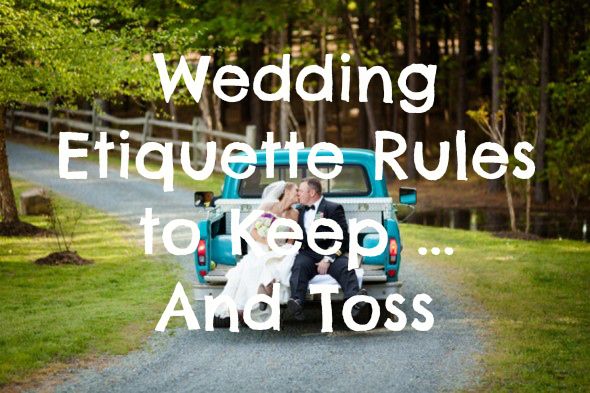
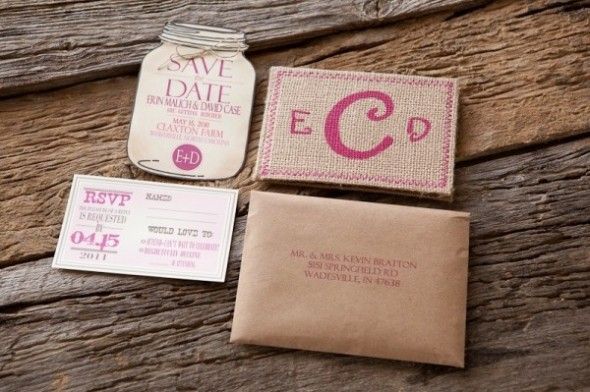
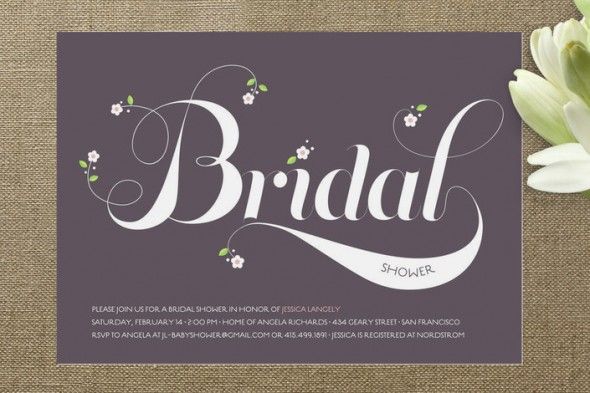
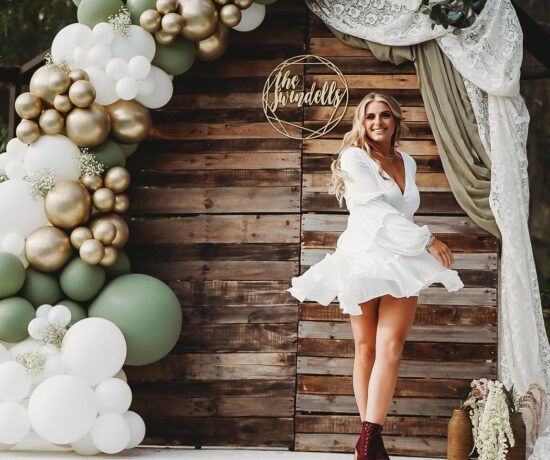
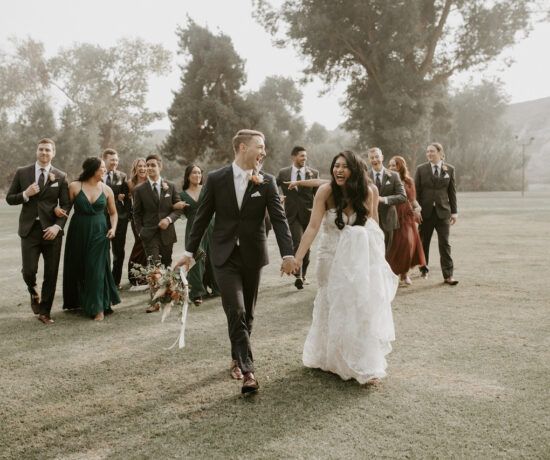
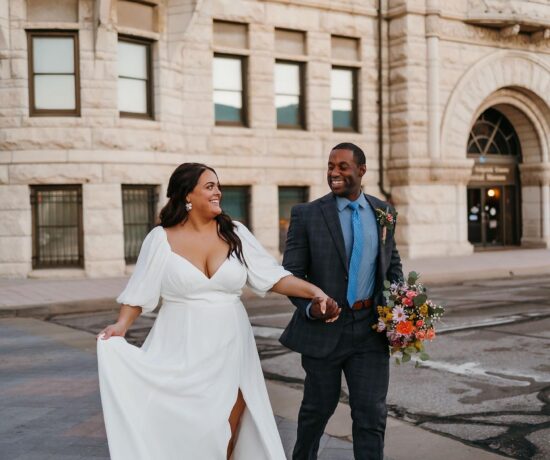
No Comments